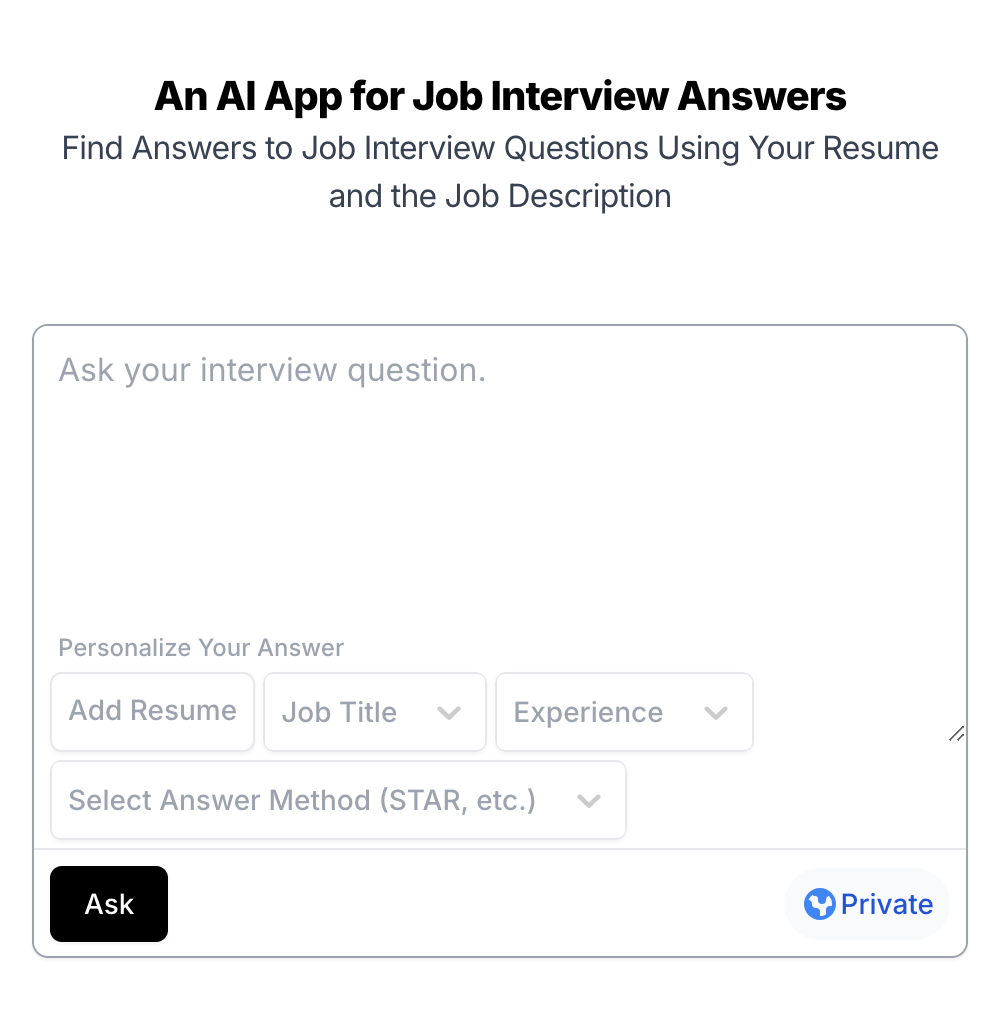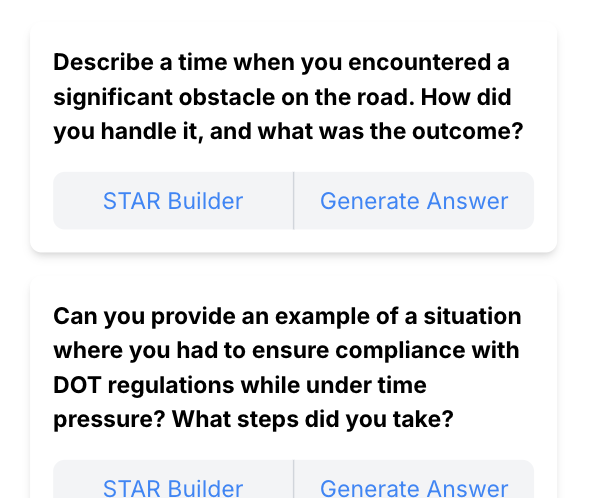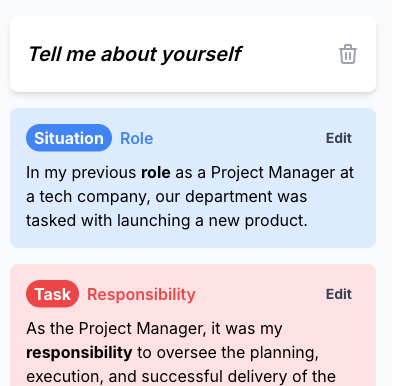
Personal Interview Questions: What You Need to Know
Fri Aug 23 2024•Author: InterviewPro AI
Table of Contents
- What Are They?
- Common Examples
- Answer Length
- What to Avoid Saying
- Possible Follow-Ups
- More Follow-Up Questions
- When They're Asked
- Who Asks Them
- Why They Matter
- How to Answer Well
- Answer Structure
What Are They?
Personal interview questions ask about your background, experiences, and personality. Employers use them to learn about you as a person and see if you fit their company culture. They want to understand your motivations, work style, and how you handle different situations.
5 Common Examples
- Tell me about yourself.
- What are your greatest strengths and weaknesses?
- Where do you see yourself in five years?
- Why do you want to work for our company?
- How do you handle stress and pressure?
Answer Length
Keep your answer to about 1-2 minutes. This gives you enough time to share relevant details without talking too much. Your answer should be focused and show why you're a good fit for the job.
What to Avoid Saying
Don't say these things when answering personal questions:
-
Don't share too much personal information Bad example: "I'm going through a divorce right now, so I'm looking for a new job to keep busy." Why it's bad: This is too personal and might make the interviewer uncomfortable.
-
Don't speak negatively about past employers Bad example: "My last boss was terrible, so I quit." Why it's bad: This makes you look unprofessional and hard to work with.
-
Don't lie or exaggerate Bad example: "I'm an expert in every programming language." Why it's bad: Lies can be easily discovered and will hurt your chances.
-
Don't give vague answers Bad example: "I'm a hard worker" (without giving examples) Why it's bad: This doesn't prove anything or make you stand out.
-
Don't say you have no weaknesses Bad example: "I don't have any weaknesses." Why it's bad: This shows a lack of self-awareness and ability to improve.
-
Don't give irrelevant information Bad example: "I love playing video games" (when applying for an accounting job) Why it's bad: This doesn't show how you're qualified for the job.
-
Don't show a lack of career direction Bad example: "I don't really know what I want to do with my career." Why it's bad: This suggests you might not be committed to the job or company.
Show that you're professional, self-aware, and focused on the job you're applying for.
Possible Follow-Ups
After you answer, the interviewer might ask more questions to dig deeper. They could ask about:
-
Specific examples: They might want you to give real-life situations that show your skills. Example: "Can you give me an example of a time you showed leadership?"
-
Your motivations: They could ask why you made certain choices in your career. Example: "Why did you choose to study marketing in college?"
-
Your work style: They might ask how you prefer to work or communicate. Example: "Do you prefer working in teams or independently?"
-
Your goals: They could ask about your future plans and ambitions. Example: "What kind of role do you see yourself in five years from now?"
-
Your values: They might ask about what's important to you in a job or company. Example: "What do you value most in a work environment?"
-
Your interests: They could ask about your hobbies or passions outside of work. Example: "What do you like to do in your free time?"
5 More Follow-Up Questions
- "How would your previous coworkers describe you?"
- "What's the biggest challenge you've faced in your career so far?"
- "What motivates you to do your best work?"
- "How do you stay organized and manage your time?"
- "What's your approach to learning new skills?"
When They're Asked
You might hear these questions at different times:
-
First Phone Call: You might get basic personal questions to get to know you. Example: "Can you tell me a bit about your background?"
-
First Interview: This is when you'll probably get most personal questions, mixed with other types. Example: "What made you interested in this field?"
-
Later Interviews: You might get more in-depth personal questions here. Example: "How do you think your experience has prepared you for this role?"
-
Group Interviews: Different people might ask personal questions from various angles. Example: "What unique qualities would you bring to our team?"
-
Final Stages: You might get questions about your long-term goals and fit with the company. Example: "How do you see yourself growing with our company?"
These questions can come up at any time, depending on who's interviewing you and what job you're applying for.
Who Asks Them
-
HR People: Example: "What are your salary expectations?"
-
Hiring Managers: Example: "How do you handle conflict in the workplace?"
-
Team Leaders: Example: "What's your preferred management style?"
-
Potential Coworkers: Example: "What do you like to do for fun outside of work?"
-
Top Managers: Example: "Where do you see yourself in ten years?"
-
Outside Recruiters: Example: "What are your top three must-haves in a new job?"
The person asking usually chooses questions that help them understand if you're a good fit for the role and company culture.
Why They Matter
These questions help employers understand who you are as a person, not just your skills and experience. They use these questions to see if you'll fit in with the team and company culture. Your answers show your personality, work style, and values, which are all important for job success.
How to Answer Well
- Be honest and authentic
- Connect your answers to the job requirements
- Use specific examples from your past experiences
- Show enthusiasm for the role and company
- Keep your answers positive and professional
Answer Structure
Use this plan to organize your thoughts:
- Start with a brief overview: Give a short summary of your relevant background
- Provide specific examples: Use stories from your past to illustrate your points
- Connect to the job: Explain how your experiences relate to the position
- End with enthusiasm: Show your interest in the role and company
Personal questions let you show who you are and why you're a great fit for the job. Use them to highlight your strengths and show how you align with the company's values. Your answers help employers see how well you'd fit into their team, so focus on showing your best qualities and how they match the job requirements.
Can't find what you're looking for?
Try our AI-Powered Interview Preparation Tools
Prepare for your job interview with our AI tools. Tailored answers, custom questions, and STAR method responses.


